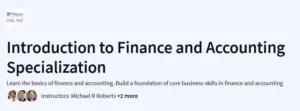What you will learn in Understanding Research Methods Course
Formulating Research Questions: Learn how to develop clear and focused research questions that guide your study.
Research Design: Understand different research designs, including qualitative, quantitative, and mixed methods approaches.
Data Collection Techniques: Explore various methods for collecting data, such as surveys, interviews, and experiments.
Data Analysis and Interpretation: Gain skills in analyzing and interpreting data to draw meaningful conclusions.
Ethical Considerations: Learn about the ethical standards and conduct required in research to ensure integrity and protect participants.
Program Overview
What Is Research and What Makes a Good Research Question?
⏳ 1 hour
Focus on formulating a research question.
Engage in peer review exercises to refine your question.
Reflect on feedback to improve your research question.
Research Design
⏳ 1 hour
Understand the principles of research design.
Learn about different research designs and their applications.
Explore the strengths and limitations of various designs.
Data Collection Techniques
⏳ 2 hours
Explore various methods for collecting data.
Learn about the tools and techniques used in data collection.
Understand the importance of selecting appropriate data collection methods.
Data Analysis and Interpretation
⏳ 2 hours
Gain skills in analyzing and interpreting data.
Learn about different data analysis techniques.
Understand how to draw meaningful conclusions from data.
Ethical Considerations in Research
⏳ 1 hour
Learn about the ethical standards and conduct required in research.
Understand the importance of ethics in protecting participants.
Explore case studies to apply ethical principles.
Get certificate
Job Outlook
Proficiency in research methods is valuable for roles such as Research Analyst, Data Scientist, Academic Researcher, and Policy Analyst.
Skills acquired in this course are applicable across various industries, including academia, healthcare, social sciences, and market research.
Completing this course can enhance your qualifications for positions that require strong research and analytical skills.
Specification: Understanding Research Methods
|
FAQs
- The course is designed for beginners as well as learners with some academic experience.
- Basic familiarity with academic writing and critical thinking helps but is not mandatory.
- Supplementary reading on research terminology can help new learners grasp concepts faster.
- Assignments provide step-by-step guidance on applying research methods practically.
- Covers key stages of research design including problem definition, methodology selection, and data collection.
- Provides frameworks for structuring research questions and hypotheses.
- Practical exercises guide learners in creating simple research plans.
- Additional practice and mentorship may be needed for complex or large-scale projects.
- Introduces basic statistical concepts such as averages, variability, and correlations.
- Focuses on understanding when and how to apply statistical methods rather than complex computations.
- Learners are not required to be experts in software like SPSS, R, or Python, though familiarity can help.
- Exercises emphasize conceptual understanding and application of methods.
- Teaches how to structure research papers, reports, and presentations.
- Provides guidance on citing sources, literature review, and documenting methodology.
- Helps learners present research findings logically and clearly.
- Does not replace mentorship or peer review but provides a strong foundational framework.
- Concepts like problem definition, data collection, and analysis are relevant to business and market research.
- Helps professionals design surveys, analyze customer data, or evaluate processes.
- Provides frameworks for decision-making based on evidence and research insights.
- Practical application may require adaptation depending on the professional context.





